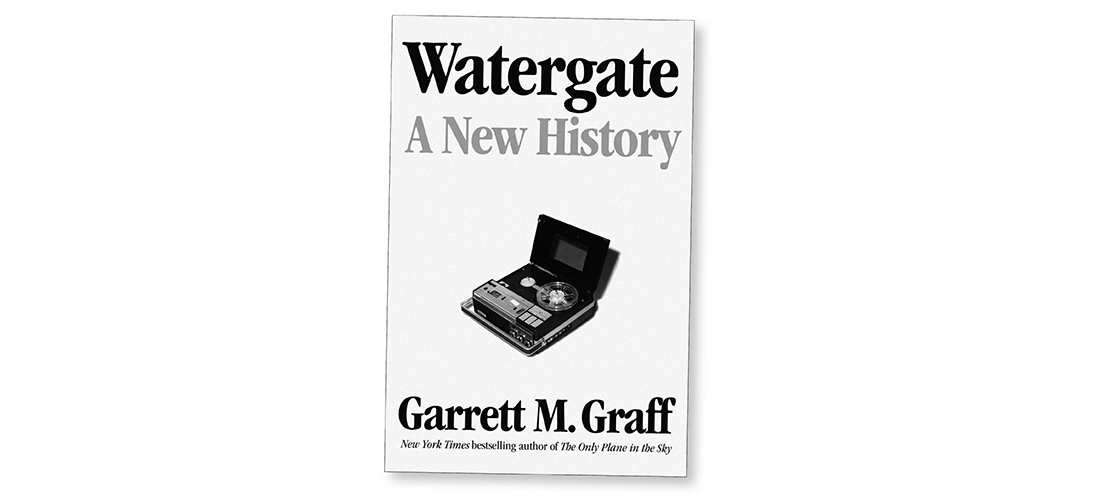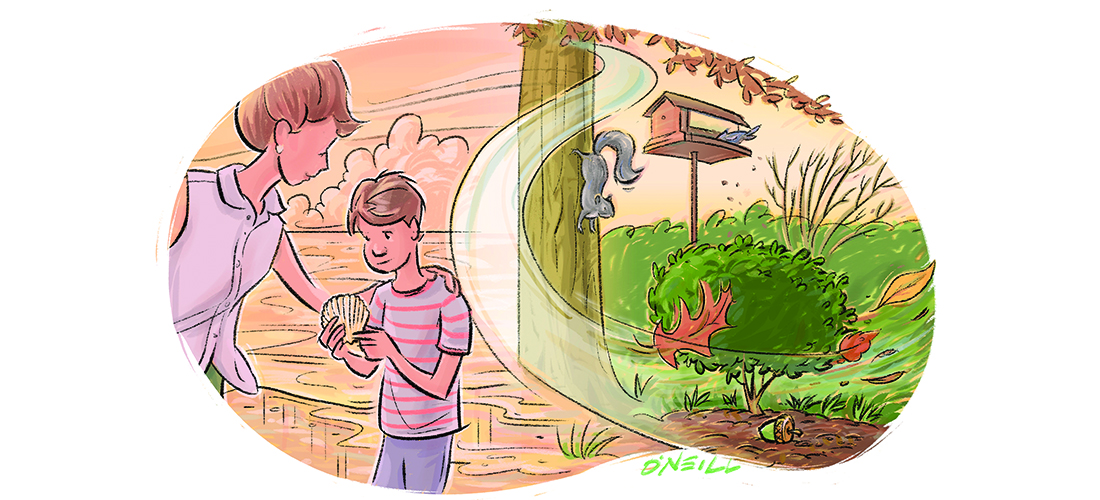Watergate Revisited
A thorough look at the end of our political innocence
By Stephen E. Smith
If you don’t believe history can turn on insignificant details, consider this: The political firestorm known as Watergate was precipitated by a piece of cheap tape. In his Watergate: A New History, Garrett M. Graff, a former editor of Politico Magazine, has gathered the particulars of America’s most infamous political scandal into an 800-page history that thoroughly examines the minutiae that brought down the 37th president.
If you’re among the millions of Americans born after the Watergate scandal, here’s what you need to know. In the early hours of Saturday, June 17, 1972, a security guard at the Watergate Complex in Washington, D.C., discovered that duct tape had been used to ensure that a couple of doors remained unlocked. The guard called the cops, and five officers disguised as hippies apprehended five men in suits and charged them with attempted burglary. It was the beginning of the end of Richard Nixon’s presidency and America’s political naivete.
If you suffered through those troubled times — June 1972 to August 1974 — you’re probably wondering if another Watergate history is necessary. Given the number of books, articles, documentaries and movies that have investigated every possible facet of the Watergate debacle, it’s difficult to imagine the need for a retelling, but once you’ve begun your retrospective journey in Graff’s “new” history, there’s no turning back. You may think you know all there is to know about Watergate but you don’t.
Graff is a proficient storyteller and an able prose stylist, and he excels at breathing new life into characters who have dimmed with time — E. Howard Hunt, G. Gordon Liddy, Chuck Colson, Donald Segretti, John Ehrlichman, H.R. Haldeman, John Mitchell, John Dean, Jeb Magruder, et al. — and the journalists, senators, congressmen, wives and government employees whose lives were altered by the scandal that sent 25 of Nixon’s cronies to prison. To do this, Graff plowed through the published accounts, oral histories, the Oval Office tape transcripts, as well as FBI, court and congressional records. His objective was to “re-investigate.”
“I believed from the start,” he writes, “that the full story of this scandal didn’t lie in the umpteenth interview, fifty years after the fact, with a key player who had already spent decades telling, refining, and positioning his story.”
Graff is particularly adept at reintroducing readers to lesser-known Watergaters. L. Patrick Gray, acting director of the FBI from May 3, 1972 to April 27, 1973, is a case in point. For most Americans, he remains an insignificant figure in the scandal, but Graff fully explores Gray’s character — especially his overriding desire to become director of the FBI — and his failings, including his admission that he’d destroyed documents taken from Hunt’s safe. “Under questioning, Gray admitted he had regularly sent investigative reports to the White House via Dean,” Graff writes, “allowing the president’s staff access to files that (J. Edgar) Hoover had previously guarded.”
Likewise, Margaret Mitchell, the brash, outspoken, way-too-Southern wife of Attorney General John Mitchell, provided comic relief during the scandal, but Graff details her political insights and how she was ruthlessly attacked by members of the administration and her former husband. He recasts her as a perceptive and outspoken critic who was harassed and demeaned by Nixon’s henchmen.
Al Haig, famous for having blurted “I’m in control here” after the attempted assassination of President Ronald Reagan, became Nixon’s chief of staff when Haldeman was fired. He had, in fact, taken control of the White House prior to the attempt on Reagan’s life: “. . . as Nixon retreated deeper mentally and physically while Watergate consumed his presidency, some would joke that Haig became the nation’s ‘37 1/2th’ president.”
Another minor player was Alexander Butterfield, the soft-spoken former Navy pilot who was the House committee’s first witness in its impeachment hearings. He testified for 10 hours, revealing the secret Oval Office taping system and reinforcing the notion that Nixon was too much of a control freak not to have known what was going on with his subordinates. Even Nixon’s secretary Rose Mary Woods (remember the “the Rose Mary stretch”?) doesn’t escape scrutiny. She was certainly a player in the coverup, and there was speculation that she was a CIA informant.
Mark Felt, the FBI’s No. 2 official at the beginning of the scandal, is the frequent subject of Graff’s reporting. When writing their investigative stories in the Washington Post, Bob Woodward and Carl Bernstein identified their primary source as “Deep Throat,” but Felt wasn’t publicly outed until 2005, at age 91, when he revealed to Vanity Fair that he was Woodward and Bernstein’s informant. Ironically, Felt’s identity as an FBI mole was known to the Nixon administration as soon as Woodward and Bernstein began to write about the white-collar criminals who facilitated Nixon’s cover-up operation.
The questions that don’t get answered are the most obvious: Why did a serving president who was a shoo-in for a second term employ widespread illegality to secure an election he was certain to win? Did the Democrats have dirt on Nixon? Was any advantage to be gained by eavesdropping on Democratic headquarters? Were the Watergate burglars — “the Plumbers,” as they were known in the administration — set up for failure? Since the break-in at Daniel Ellsberg’s psychiatrist’s office yielded no useful information and the confusing circumstances of the ITT merger certainly went unnoticed by the electorate, why had Nixon and his minions continued their illegal activity? And there remains this overriding question: Why had Nixon insisted on recording Oval Office conversations when he knew he was speaking words that would eventually incriminate him?
Richard Nixon remains a shadowy figure in American history, and “gate” has become a convenient suffix for other scandals — most of them overblown or imaginary — but there’s no denying that Nixon’s political shenanigans changed us forever. Unfortunately, the lesson to be drawn from Watergate continues to elude most politicians. Any neighborhood gossip could tell them that in political life there are no secrets, finally or ever. PS
Stephen E. Smith is a retired professor and the author of seven books of poetry and prose. He’s the recipient of the Poetry Northwest Young Poet’s Prize, the Zoe Kincaid Brockman Prize for poetry and four North Carolina Press Awards.


